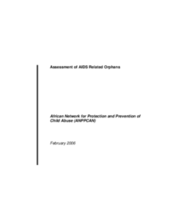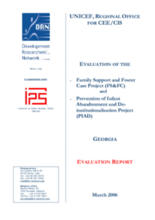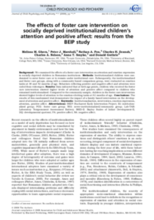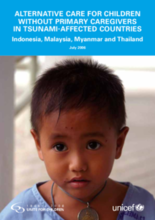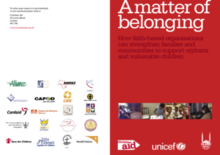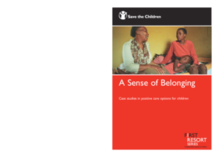Displaying 2121 - 2130 of 2221
Highlights characteristics among homes caring for children lacking parental care, providing a specified understanding of the educational, financial and supportive environments present for children in foster care arrangements in Kenya
Reports on an evaluation of the monitoring system for children in the custody of the Jamaican government. Highlights problems and inefficiencies inherent in the monitoring process. Includes recommendations.
Evaluation of two alternative care programmes in Georgia. Focus on contributions towards the construction of gatekeeping systems for alternative care services. Includes detailed lessons learned and recommendations.
This article highlights findings from various studies of developed countries focusing specifically on foster-care outcomes.
The study examined the effects of a foster care intervention on attention and emotion expression in socially deprived children in Romanian institutions
An assessment of alternative care responses for children without primary caregivers in tsunami-affected regions of Malaysia, Myanmar, Indonesia, and Thailand. Includes good practices, recommendations, and detailed country reports.
This document provides an overview of the evolution of treatment family foster care in the US for youth with emotional or behavioral disorders, as an alternative to psychiatric hospitalization or long-term residential treatment.
A situation analysis of laws, policies, and structures relevant to child protection in Sri Lanka, and a set of recommendations for improving the alternative care system.
A guide for faith-based organizations working in developing countries on issues related to orphans and vulnerable children. Contains examples of successful community-based and family support care programs throughout the world that are run by faith-based groups. Discourages the use of institutional care and orphanages.
Save the Children's "First Resort" series focuses on the needs and rights of children who, for a wide variety of reasons, are lacking adequate parental care. This third paper in the First Resort series presents practical examples of the range of options available to policy-makers, practitioners and others with responsibilities for the care and protection of children without adequate parental care.

